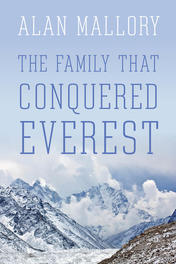Special Interest

The Flour Peddler




Two men spring from the shadows, gather our bags and flip-flop around the building. We follow, shivering, our sandals hollow on the wooden planks, until a bare bulb at the rear haloes the shallow draft, the pointed prow -- a flat-bottomed boat against a makeshift wharf. The boatmen toss our bags into the skiff, cage them beneath a net as if they might escape. Inside the boat, four wooden chairs await, each with seat cushion and life jacket. Our driver gestures us into the chairs, nodding, his Myanma words soft and encouraging. The boat sways madly with every footfall. Waves slap wood. When we are settled in, our driver smiles, then turns and walks into the dark.
The boatmen squatting at stern and bow push us off the wharf. The bulb shuts off. Such darkness. The only sound is the splash of oars, the sweep of ironwood, our own elated breaths. And soon our pupils widen to contain the narrow channel cut between mist and tall silhouettes of homes on stilts, night flowing beneath them. The motor sputters into motion. We skim black water, black night, only the sky a brilliant 3-D tapestry. Now and then, another engine grumbles. Our boatman flicks a flashlight once, twice, three times, catches the eerie shape of a boat ahead or to the side of us. I wonder how we manage not to collide. No one speaks. The air is cold on our bare arms, our thin T-shirts. I carefully pull the life jacket from the back of my seat and use it as a shield against the wind.
I could talk about our destination, the flicker of lights in the distance, the stilt Paradise Hotel in the middle of the lake -- the thatched-roof huts connected by a boardwalk; our three days here; the pale-blue, plate-glass lake at 6:00 a.m.; the elephant-grass mats staked into rows in the middle of the lake, bobbing with vegetables, flowers; the magenta hyacinth blossoms drifting languidly in the swishing waves; the floating islands of sugar cane wafting in sun; the woman singing in her house; the narrow waterways between rows of tomato plants; the floating markets of jade, tin, iron, silver; the scent of lavender; the crooked fingers of mountains falling into the lake; the famed Intha leg-rowing fishermen, their cone-shaped nets; the various villages around the lake -- these water people: the lotus weavers of Inpawkhon, rhythmic, to the sound of clack, clack, clack; the five blacksmiths of Selkowouen pounding mallets against red-hot metal, while an old man fans the fire with chicken feathers; the girls of Nanpan village rolling cheroots below clear plastic bags of water hanging from the rafters to fool mosquitoes or flies into seeing insects larger than themselves; the delicate women in traditional silk or cotton dress -- long fitted skirts and tops with modest three-quarter sleeves, rowing boats laden with rice bags, sitting cross-legged, separating threads of lotus, tending the floating gardens; the Phaung Daw Oo pagoda monastery, home to the five miraculous Buddha heads; the Padaung women wearing neck rings which crush and deform their shoulder bones; Ywama, the largest floating village on the lake -- a tropical Venice with its web of canals connecting boardwalks and bridges, splendid teak houses atop large wooden pylons driven into the lake bed; the potted orchids hanging from window-sills; flat boats everywhere: bulging with monks in brick-red robes, laden with fertile mud dredged from the bottom of the lake, brimming with bamboo poles; Indein Creek, which twists and turns under wooden bridges, cuts through sugar cane plantations and rice paddies, its clay banks reinforced with sticks; villagers ploughing, harrowing behind water buffalo, carrying hoes, scythes and baskets; the dirt path past market stalls, past circles of men squatting, up to the ancient stupas, trees growing out of their sides, roots clawing their walls; the small boy who kept us from stepping on poisonous snakes; and back on the lake, the flocks of whistling ducks, the white egrets, the dozens of species of birds, jacanas; floating villages, water people, water.
But what I most recall from this journey comes before all this. We're back in that shallow draft at night, skimming the narrow channel. Suddenly, the sides fall away, and we're out in the lake, travelling swiftly in total darkness, under a dazzling sky. Mist swirls in the air. Here and there, dark clumps of vegetation hover in front of us, beside us, in hazy sculptures the boatmen skirt around. I am thrilled by this remoteness, this total loss of anything familiar, this growing sense of singleness, everything new, all that I know falling away second by second, so that I am simply experiencing the moment, without expectations, abandoned to the mystery unfolding. I wonder if this is how the early explorers felt, their hearts fluttering, their eyes and ears open to the unknown. And as we progress -- across the water in the black, black night, I also think about Conrad, and Heart of Darkness, and how this journey is a literal journey into darkness, but I have no foreboding, no fear. I am exhilarated by the wind, by the spray of water at our sides, by the brilliant sky and by the darkness itself, which envelops me, ushering me forward.





